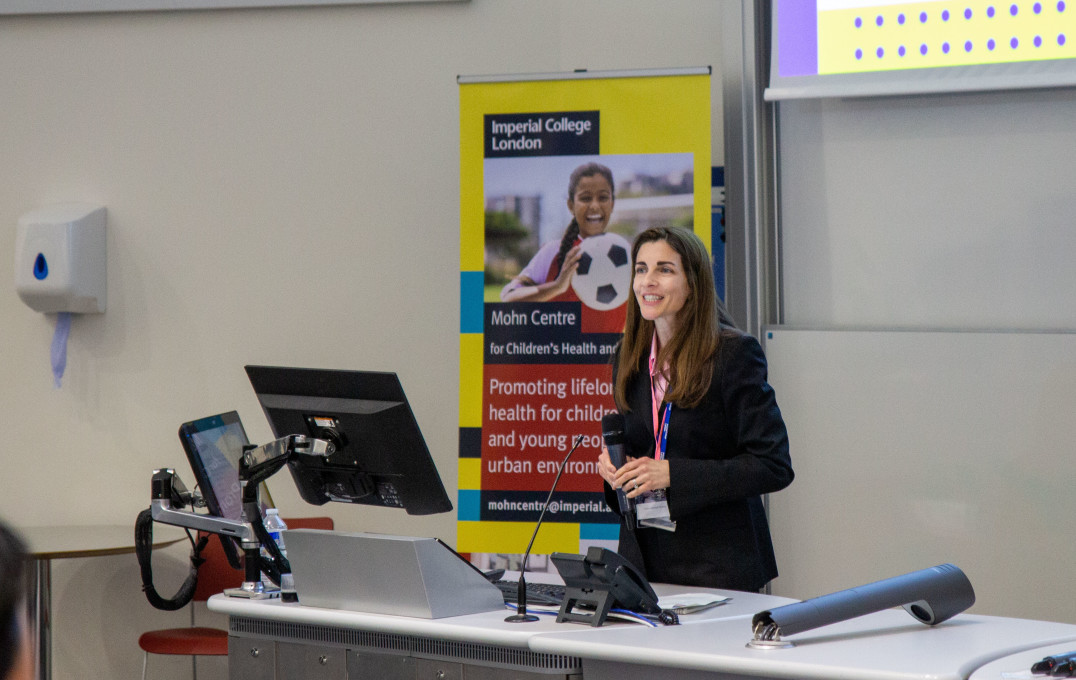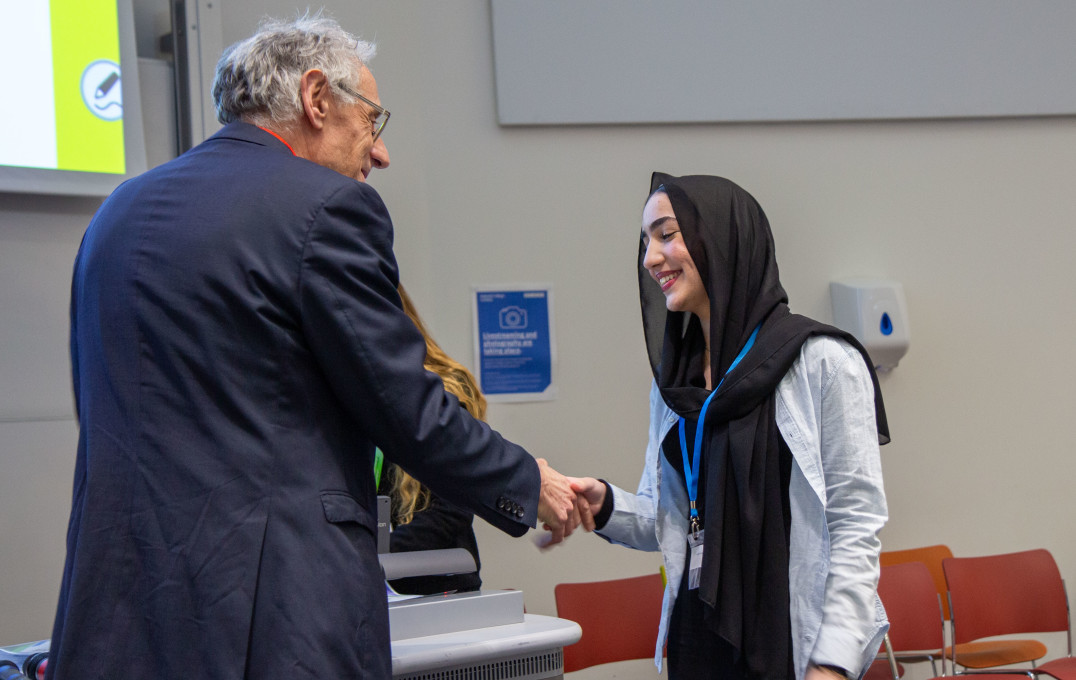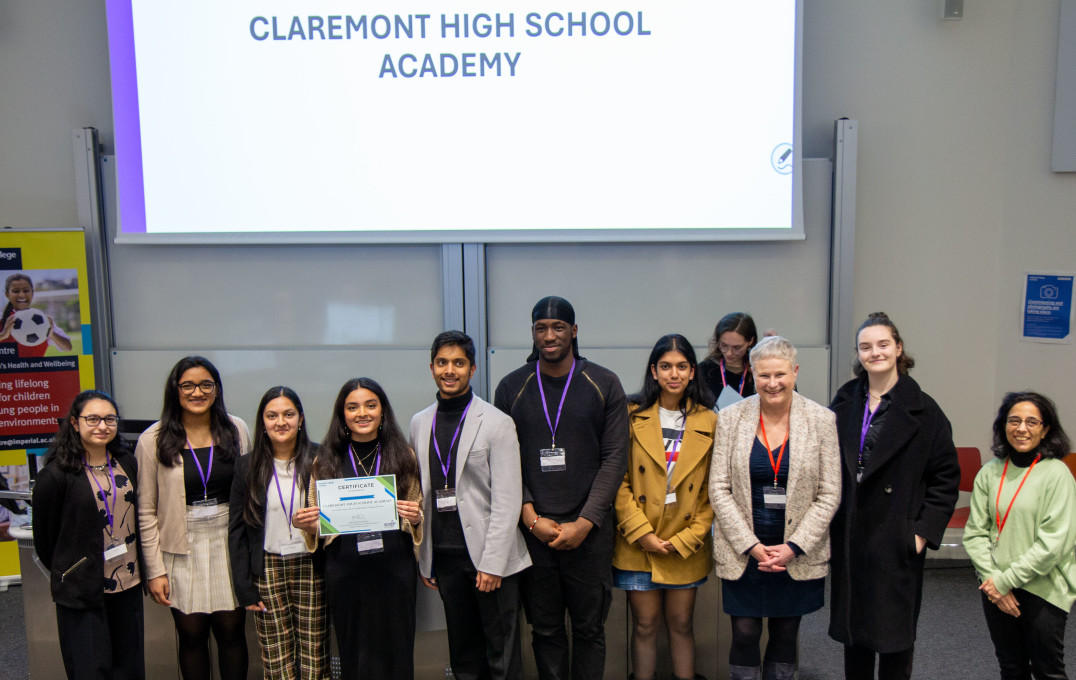SCAMP study celebrates research challenge pupils
by Jack Stewart
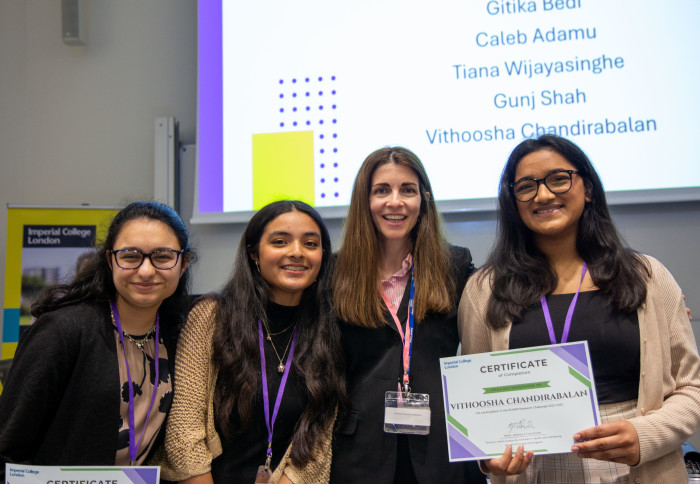
Research Challenge pupils who have participated in the SCAMP study have been celebrated at a recent awards ceremony.
On Monday 20 March, colleagues from the School of Public Health and the Mohn Centre for Children’s Health and Wellbeing, along with schools from across London, gathered to celebrate the achievements of the Research Challenge pupils who contributed to the latest phase of the Study of Cognition, Adolescents and Mobile Phones (SCAMP).
As the largest study of its kind, SCAMP aims to investigate the impact of mobile phones and social media on the cognitive development, brain function and physical and mental health of young people. The study is part of the Mohn Centre’s work, which aims to unpick the complex network of interactions between environmental, behavioural, genetic and molecular factors to improve the health of children and young people.
Founded in 2014 with contributions from over 30 researchers across six universities, SCAMP has entered a fourth wave entitled the ‘Research Challenge’ which has given sixth form pupils the opportunity to lead the research in their respective schools. The 80 Research Challenge pupils have been providing fresh insights into how their peers interact with mobile phones and have collected cognitive data and biosamples from over 1,000 of their peers.
A Research Challenge student from Beal High School, said; “I improved my communication skills and my overall confidence during the programme. These skills will be very useful in the future?(at university and in any profession I go into).”
Award winners
To celebrate the hard work and dedication of these pupils, an awards ceremony was held at South Kensington where Professor Deborah Ashby, Professor Paul Elliot and Professor Sejal Saglani presented certificates to all involved. Special awards were then presented to schools who collected the most data in four data collection categories.
The award winners are:
- Most completed psytool assessments: Chislehurst and Sidcup Grammar School with teacher Ms. Rebecca Paris.
- Most saliva samples collected: Islington Collegiate Sixth Form with teacher Ms. Amy Zambon.
- Best biozone collection: Claremont High School Academy with teacher Dr. Yiakovos Nicolaou.
- Best school recruitment campaign: Tiffin School with teacher Mr. Michael Selig.
Research Challenge pupils were also encouraged to submit their own research questions which will then be explored by the SCAMP team. Winning questions included themes exploring time spent outside, smartphone usage on grip strength and gaming.
Best research question proposals went to three schools:
- Alec Reed Academy with Mrs. Chamandeep Thind,
- Bishopshalt School with Ms. Mairi Vodden, and
- Lady Eleanor Holles School with Ms. Helen Lenox-Smith.
Professor Mireille Toledano, Director of the Mohn Centre and Principal Investigator of SCAMP said: “Celebrating the success of the Research Challenge school pupils and their contribution to the SCAMP study has been an incredible experience. They have all gone above and beyond, bringing new insights and perspective to this important ongoing study. Their efforts will improve the lives of children and young people for generations to come.”
Inspiring the next generation of researchers
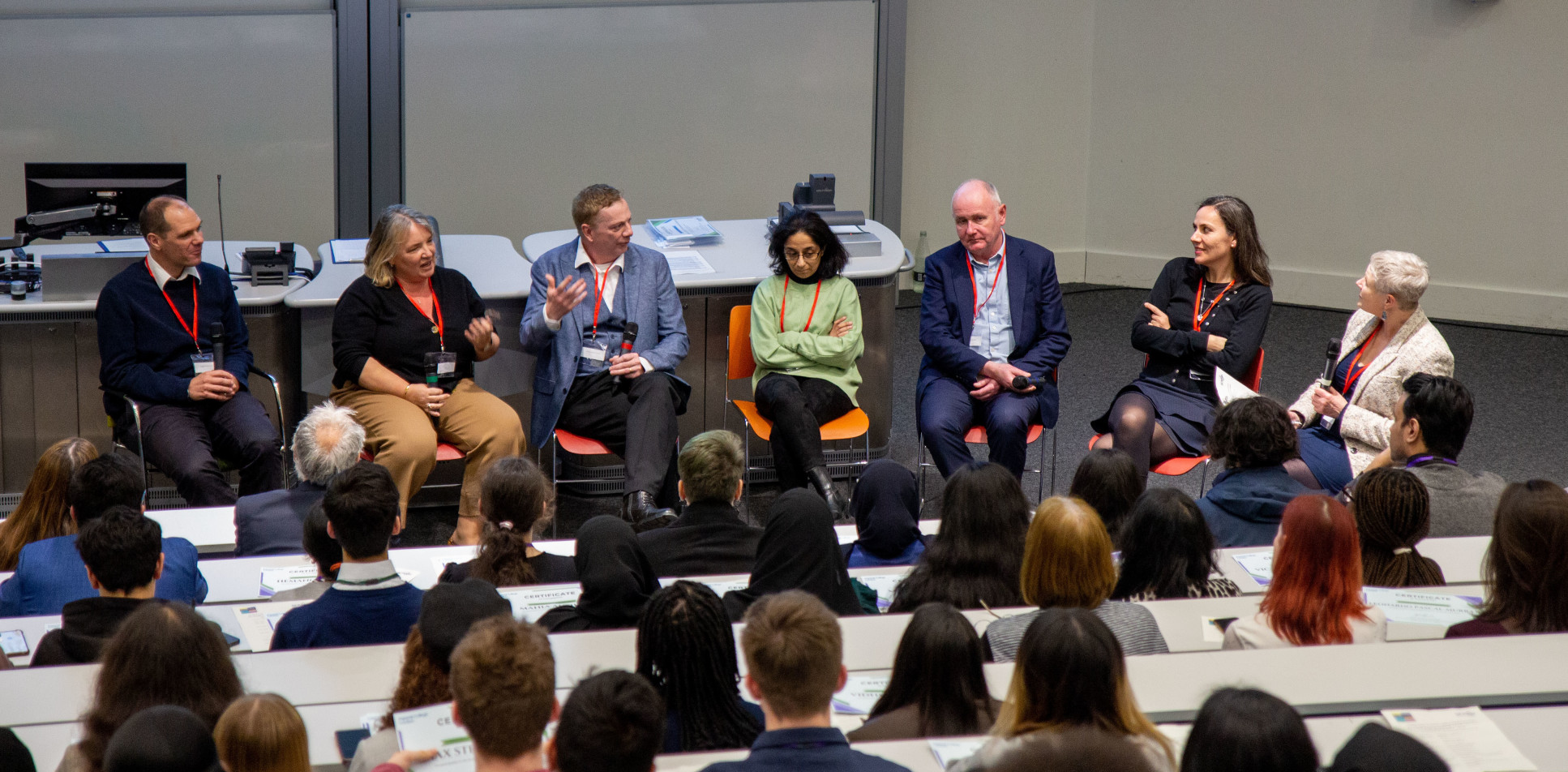
To inspire this next generation of researchers, the ceremony also hosted a panel discussion comprising of Dr Simon Bouffler (UKHSA), Professor Iroise Dumontheil (Birkbeck, University of London), Dr Dasha Nicholls (Imperial), Professor Jon Roiser (UCL), Professor Sejal Saglani (Imperial) and Professor Michael Thomas (Birkbeck, University of London). The expert panel reflected on the profession they wanted to pursue when they were younger. From astronaut to train driver and singers to genetic engineers the career aspirations varied, with the panel only knowing they wanted to pursue something they were passionate about. The group shared some excellent advice on following a career in science, with many of the Research Challenge students now interesting in studying at Imperial when the time comes.
This event would not have been possible without the support of the Mohn Centre for Children’s Health and Wellbeing.
If you are a school with 16-18 year olds interested in taking part in the next phase of SCAMP’s Research Challenge programme, please contact the team by emailing scamp@imperial.ac.uk. To find out more about SCAMP and keep up to date with its findings, please visit https://scampstudy.org/
Article text (excluding photos or graphics) © Imperial College London.
Photos and graphics subject to third party copyright used with permission or © Imperial College London.
Reporter
Jack Stewart
School of Public Health
